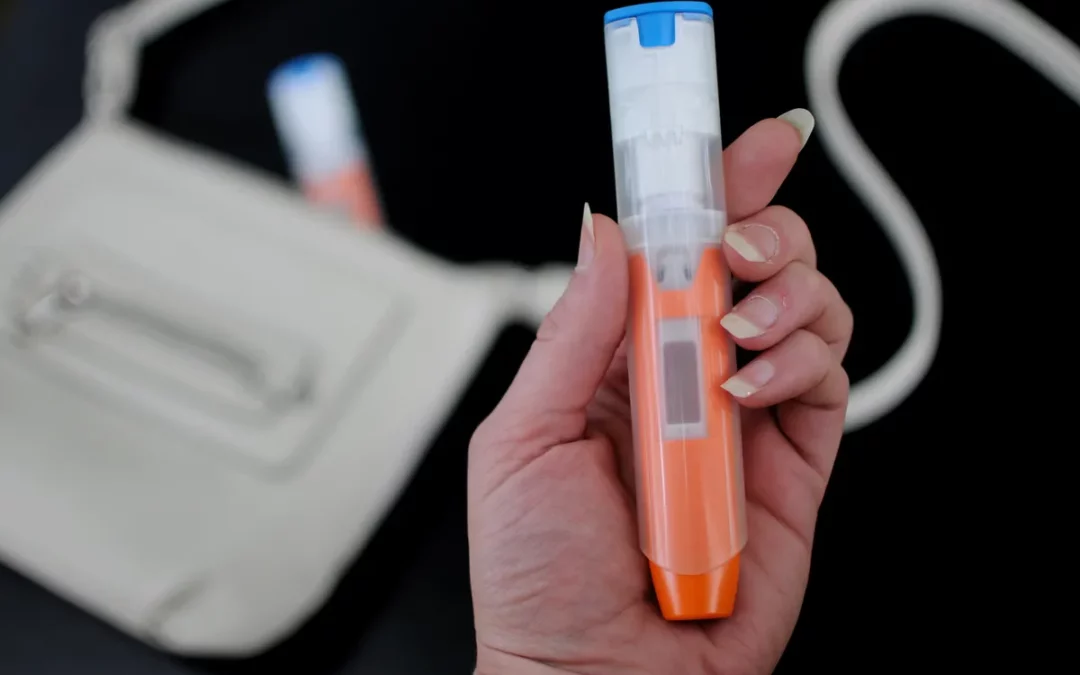It is the most severe and potentially life-threatening allergic reaction. It may occur suddenly, worsen quickly and can be most deadly.
This severe form of allergic reaction happens when your immune system releases a flood of chemicals that cause a person to go into a shock; blood pressure drops, airways constrict, and breathing becomes difficult.
Anaphylaxis requires instant injection of epinephrine and an immediate trip to the emergency facility. So, call 911 at the first sign of anaphylaxis because if not treated right away it can be fatal!
Let us look at the symptoms of anaphylaxis:
Symptoms appear suddenly and can progress very quickly. The early symptoms may be like a runny nose, itching, rashes or just a strange feeling. These symptoms can lead to more serious conditions like:
- Hives, swollen and red skin
- Coughing, wheezing, tightness in chest
- Difficulty breathing
- Swollen lips or tongue
- Itchy throat and hoarse voice
- Throat tightness
- Trouble swallowing
- Nausea and vomiting
- Abdominal pain or diarrhea
- Dizziness, fainting or weakness
- Low blood pressure
- Rapid heart rate
- Cardiac arrest
If you have allergies, then you are always at risk of anaphylaxis. If you never had an anaphylactic reaction in the past due to an offending allergen, that does not mean you won’t have it in future. Also, if you had an anaphylactic reaction in the past, you are still at risk of future reaction that can be worse than before.
That’s why it is very vey important to carry self-injectable epinephrine if you are at risk and 911 should be dialled immediately at the first sign of anaphylaxis.
How can you reduce your risk for anaphylaxis?
Know the allergen: If you had an anaphylactic reaction, then you must know the allergen which triggered it. An allergist can help you with that by reviewing your medical history and conducting some tests. The most common triggers are:
- Food: peanuts, tree nuts, fish, shellfish, eggs, milk and wheat.
- Medication: penicillin, aspirin, pain-killers like ibuprofen and anaesthesia.
- Insect bites: from bees, wasps, fire ants, hornets and yellow jackets.
- Latex: Found in disposable gloves, syringes, intravenous tubes and catheters.
Avoid the allergen: The most effective way to prevent anaphylaxis is by avoiding the causative allergen. An allergist can help you to develop specific measures to avoid the allergen depending on your age, occupation, activities, home environment and access to medical care.
Wear a medical alert bracelet or necklace: It should indicate that you have an allergy to specific allergens like drugs or food items.
Keep an emergency kit: Always carry your emergency kit with prescribed medications at all times. If you have an epinephrine autoinjector, keep it up to date. Check the expiration date and make sure to refill it before it expires.
Inform family members and friends: It is very important to inform family members, friends and anybody, with whom you spend time on regular basis. Because if you experience anaphylaxis, you may not be able to take quick steps by yourself. Therefore, tell your near ones about your allergens, how to recognize anaphylactic symptoms, place where you keep your epinephrine shot and how to use it. Teachers and caregivers should be informed about child’s allergies and how to handle the anaphylactic reaction.
Be alert: Early and prompt recognition of the slightest signs and symptoms of anaphylaxis is critical. If you unknowingly come into contact with your specific allergen, you should immediately follow the emergency plan explained by your allergist. It is better to take epinephrine, even if you are doubtful about the allergic reaction.
Emergency care: Even after injecting epinephrine, 911 should be dialled, and the person should be taken to the nearest emergency care unit.
See a specialist: Allergists are the specialist in treating and managing allergies. They have the expertise to review your medical history, conduct diagnostic tests, advice treatment options and teach how manage your allergies and anaphylaxis.
Therefore, if you or your loved ones are suffering from allergies and you are scared of anaphylaxis, we recommend you meet our board-certified allergists at “The Allergy Group” to help you in your fight against allergies and its complications! Click HERE or call 208-377-4000 to schedule an appointment!


